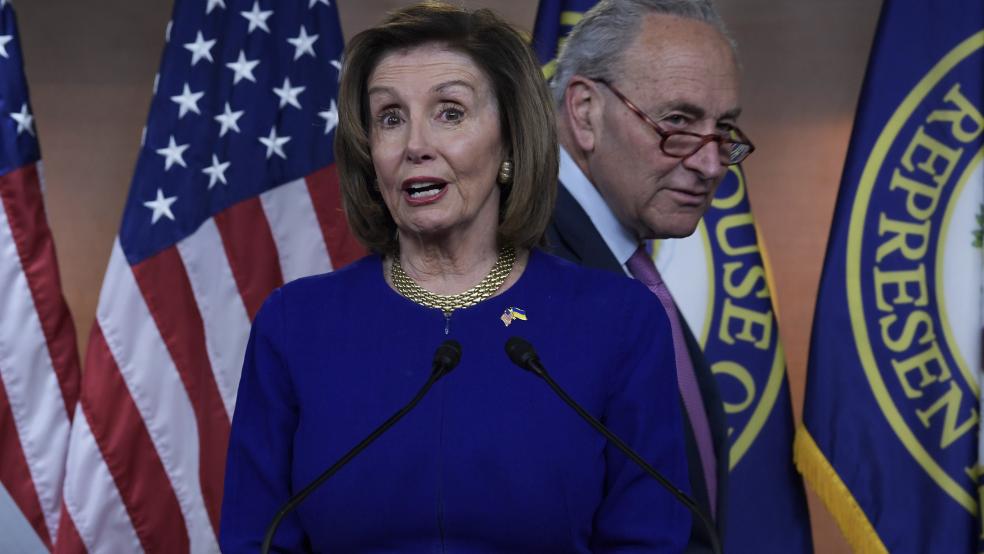Some Democrats are pressing House Speaker Nancy Pelosi (D-CA) to reconsider her rejection of a gas-tax holiday, The Hill reports.
“The grumbling is especially pronounced among lawmakers facing tough reelection contests in November, who are eager to bring home a policy they say would provide tangible and immediate savings for drivers at the pump,” The Hill’s Mike Lillis writes.
Pelosi has argued that a suspension of the federal gas tax might help lawmakers look like they’re taking action in response to high fuel prices, but it wouldn’t actually help consumers much since oil companies wouldn’t have to pass on the savings. She has also expressed concern that a gas-tax holiday would deprive the Highway Trust Fund of needed funding, a worry reportedly shared by the White House.
Vulnerable Democrats acknowledge that a gas-tax holiday would come with downsides but are pushing for one nonetheless. “It’s not perfect, what I’m proposing, but it is something. And if you are from a state where people drive 40 miles one-way to work, you’re interested in whatever helps,” Rep. Elissa Slotkin (D-MI) told The Hill.
Democratic leaders are reportedly more focused on legislation that would give state and federal officials more power to police the price-setting tactics of energy companies, which they say have been price gouging. “In focusing their initial legislative efforts here, Democrats are acknowledging other ideas floated by vulnerable members, such as the gas tax holiday and providing direct rebates to drivers, are dividing the caucus,” Politico’s Josh Siegel suggests.
But the price gouging narrative could still have legs. Both Exxon Mobil and Chevron reported sharply higher first-quarter profits on Friday. Exxon posted a profit of $5.5 billion, even after taking a $3.4 billion charge related to its divestment from operations in Russia. Its quarterly earnings were more than double its $2.7 billion profit for the same period a year earlier (but down from the $8.87 billion the company earned over the fourth quarter of 2021). Chevron, meanwhile, announced a profit of $6.3 billion for the first three months of 2022, its highest quarterly profit in almost 10 years and nearly quadruple the $1.37 billion it earned during the same quarter in 2021.
The two oil giants “will together give more cash to shareholders than they invest in oil and gas production this year even as political leaders call on the industry to increase output to help ease soaring consumer prices,” Bloomberg’s Kevin Crowley reports. And The Wall Street Journal’s Collin Eaton notes: “Energy executives say that sustained pressure from investors to return more cash to shareholders is the primary factor holding back investment in growth.”
Progressive critics of the oil companies seized on the quarterly earnings announcements to again call for instituting a windfall profits tax. Rep. Ro Khanna (D-CA), who has introduced a windfall tax bill with Sen. Sheldon Whitehouse (D-RI), tweeted: “Big Oil's profits skyrocketed last quarter while hardworking Americans suffered at the pump. Let's pass my bill with @SenWhitehouse to stop this profiteering.”
The bottom line: Democrats have limited options — and little consensus thus far — when it comes to bringing down prices at the pump, but they’ll continue to face pressure to do something, or at least demonstrate to voters that they are addressing the issue.





